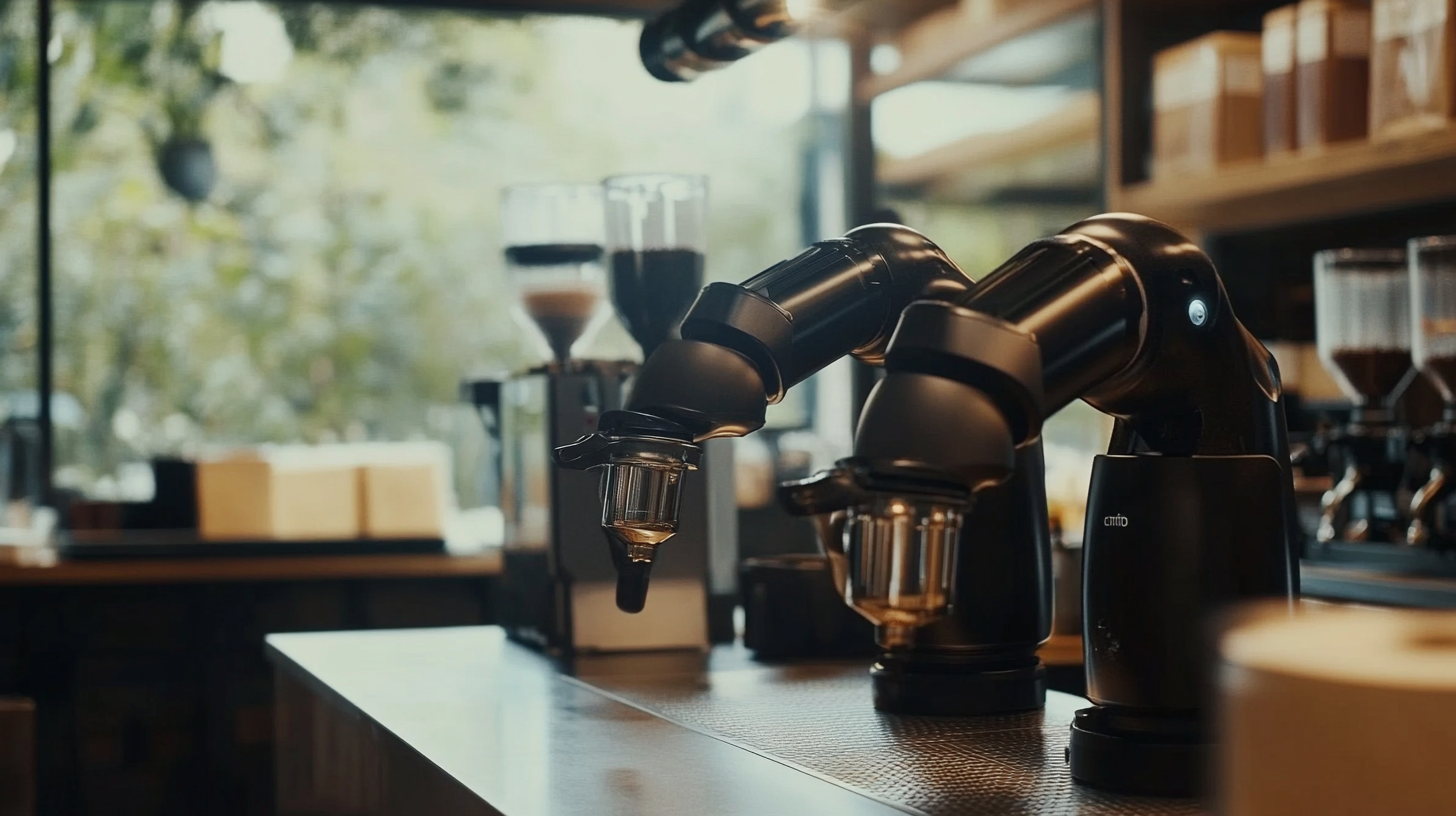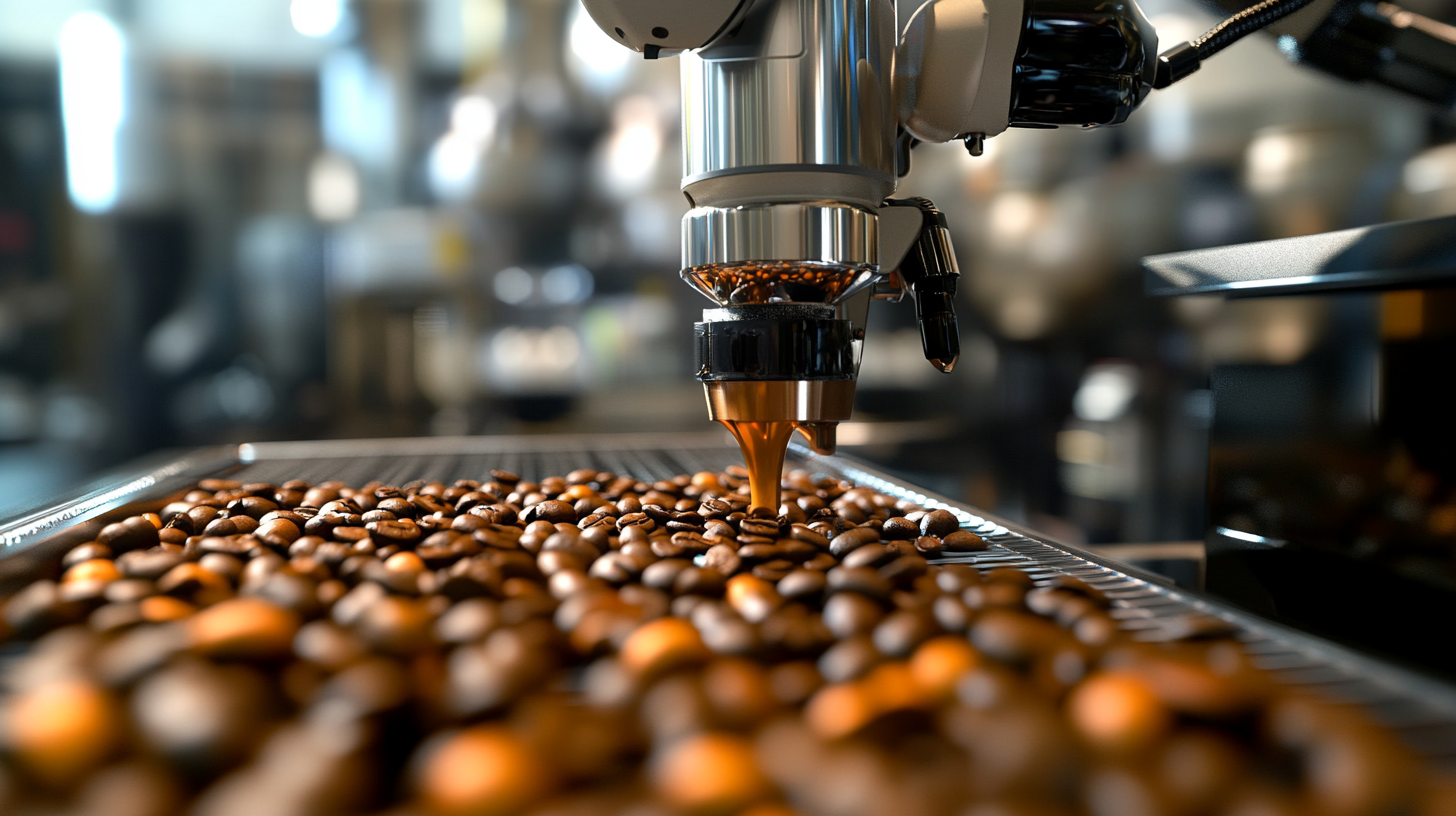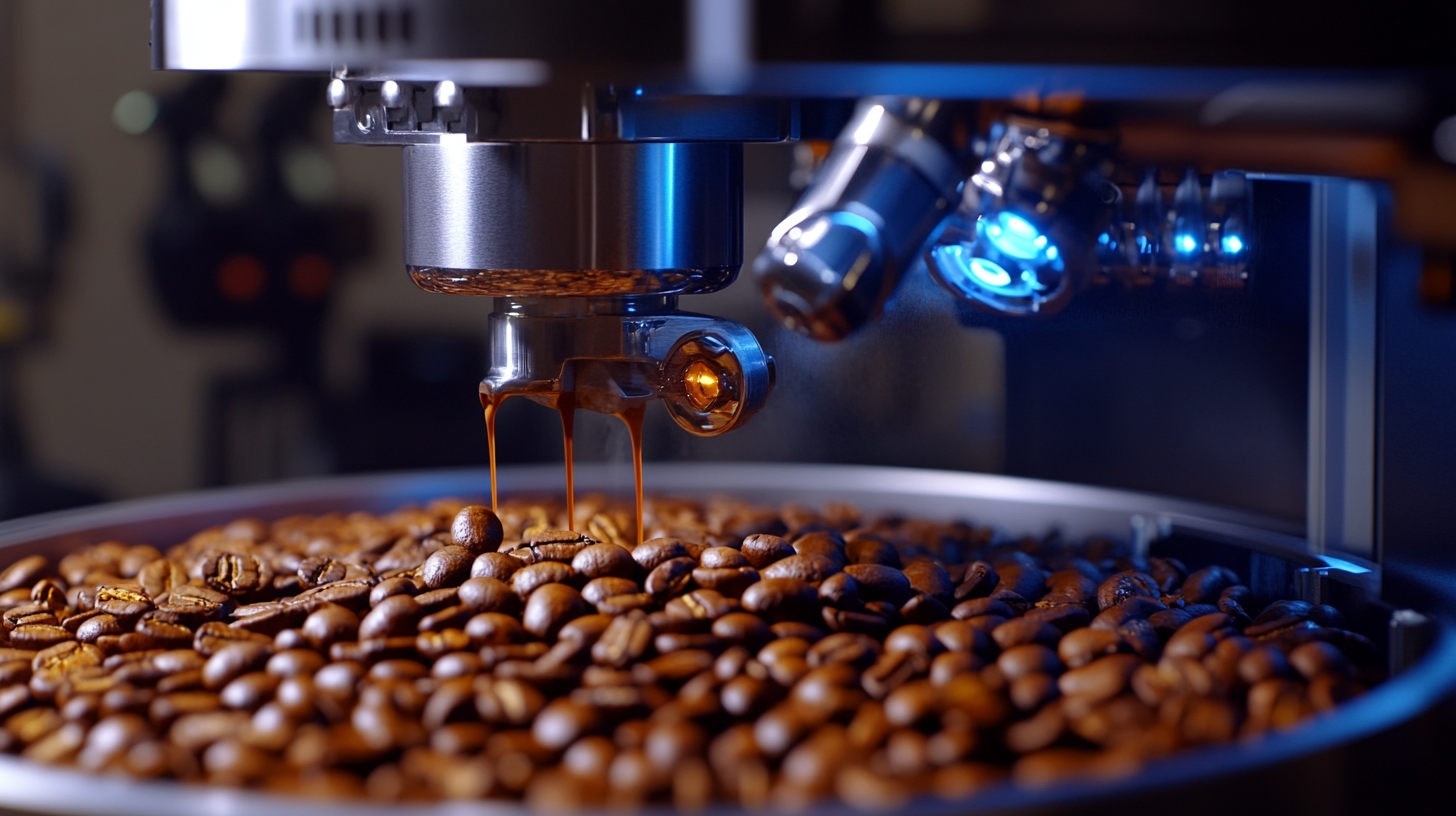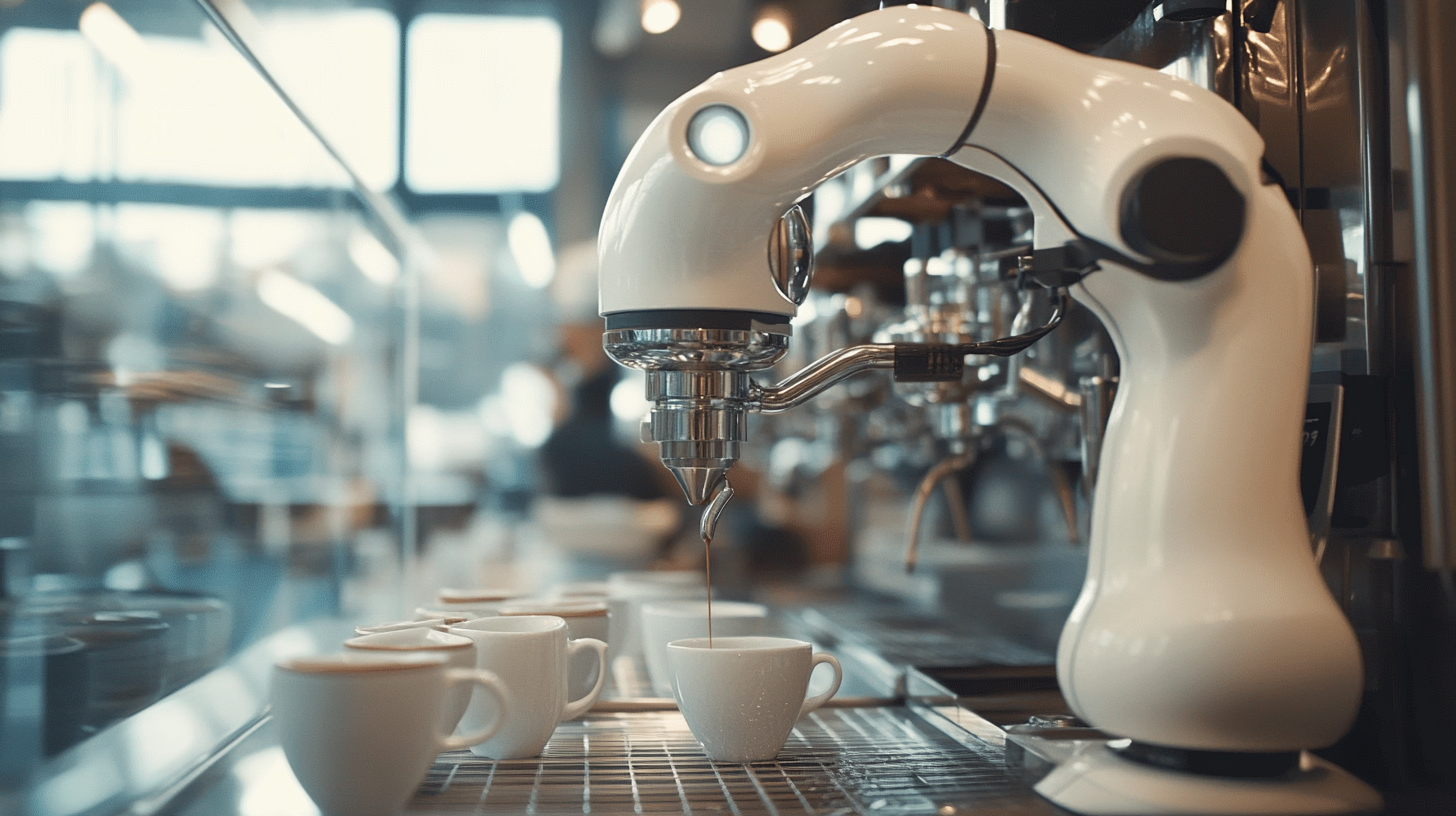As the coffee industry continues to evolve, innovative technologies are becoming essential to meet the dynamic demands of consumers and streamline procurement strategies. The rise of the Coffee Robot Barista is redefining traditional coffee-making processes, enhancing efficiency while maintaining quality. According to a report by Allied Market Research, the global coffee industry is projected to reach $155.64 billion by 2026, growing at a CAGR of 5.5% from 2019 to 2026. This growth is fueled in part by advancements in automation and robotics, which are becoming critical components in cafes and coffee shops around the world.
The integration of Coffee Robot Baristas not only responds to the increasing consumer preference for specialty coffee but also tackles labor shortages and rising operational costs faced by many establishments. A study by Goldman Sachs estimates that automation in food service could lead to cost savings of up to 25% for businesses. As a result, global procurement strategies are adapting to incorporate these cutting-edge technologies, ensuring that coffee suppliers and retailers remain competitive while catering to an ever-evolving market landscape.

The emergence of robot baristas is revolutionizing the coffee experience, reshaping both how coffee is made and the very business strategies of global procurement. With remarkable advancements in technology, these robot baristas are capable of crafting a beautiful cup of coffee with intricate designs in less than a minute. Recent innovations have showcased coffee robots producing stunning latte art—a perfect swan, for instance—that once drew long queues at popular cafés. Now, these creative masterpieces can be produced on demand, emphasizing not only the efficiency of robot baristas but also their ability to meet aesthetic and taste expectations. As these robotic coffee makers become more prevalent, they are adapting to the diverse coffee culture around the world. Capable of brewing a variety of beverages—including lattes, cappuccinos, and unique specialty coffees from different regions—robot baristas are not just replacing the human touch; they are enhancing the coffee-drinking experience. For example, a leading robot coffee brand, COFE+, has already made waves across 31 countries and was recently highlighted at Switzerland’s prominent transportation hubs, showcasing its appealing design and smart functionality. This evolution illustrates how automation in the coffee industry can maintain creativity and cater to an increasing global demand for quality coffee, making daily caffeine fixes both convenient and visually stunning.

In recent years, advancements in robotics have revolutionized the coffee brewing industry, significantly enhancing both quality and consistency. According to a report by Allied Market Research, the global coffee machine market is projected to reach $6.03 billion by 2025, with robotic baristas playing a pivotal role in this growth. The integration of robotics not only optimizes the brewing process but also ensures that the highest standards of flavor and quality are maintained across all cups served.
One of the key innovations is the use of precision brewing technology, where robotic systems can measure and control every variable involved in coffee preparation—from water temperature to grind size and extraction time. A study by the National Coffee Association reveals that precision brewing can enhance the flavor profile by up to 50%, making the end product more appealing to consumers. This level of control is particularly crucial as coffee drinkers increasingly seek specialty and artisanal coffees, demanding consistency in taste and presentation.
Furthermore, the rise of coffee robot baristas is influencing global procurement strategies by streamlining supply chain processes. These robots can analyze data from diverse origins to select the best coffee beans based on current trends and consumer preferences, allowing for a more strategic approach to procurement. According to research from Transparency Market Research, the automation within the coffee supply chain could lead to a reduction in costs by up to 20%, enabling companies to allocate more resources toward sustainable sourcing and quality enhancement. As robotic technology continues to evolve, the coffee industry stands on the brink of a new era marked by innovation and sustainability.

The coffee industry is undergoing a significant transformation, driven by the rise of coffee robot baristas. According to a recent report by Allied Market Research, the global coffee machine market is projected to reach $5.8 billion by 2027, with a substantial portion of that growth attributed to automated systems. As coffee shops increasingly adopt robot baristas, these innovations are reshaping global sourcing practices and procurement strategies for coffee businesses.
One of the key advantages of integrating robot baristas into coffee shops is their ability to streamline supply chain processes. Research from McKinsey highlights that automation can enhance efficiency by reducing order fulfillment times by as much as 30%. This efficiency is critical as coffee businesses navigate global supply chains fraught with volatility and uncertainty. By leveraging data analytics and machine learning, coffee robots can predict demand more accurately, facilitating better inventory management and sourcing decisions.
Moreover, as coffee enthusiasts become more discerning about their brews, consistency in quality becomes paramount. A study by the Specialty Coffee Association shows that 67% of consumers prefer coffee prepared with precision, a need that robot baristas fulfill remarkably well. With the ability to replicate recipes with a high degree of accuracy, these machines not only cater to customer preferences but also help businesses maintain stronger relationships with global suppliers, ensuring a steady flow of high-quality beans. Thus, the emergence of robot baristas is not just about automation; it's a fundamental shift that is reshaping how coffee is sourced and served worldwide.

As the coffee industry progresses towards 2025, one of the most transformative changes is the integration of robotic baristas. These automated systems are not only redefining the customer experience but also significantly affecting global procurement strategies. With labor costs escalating, coffee shops are increasingly turning to automation to maintain profitability. According to a report by IBISWorld, labor costs in the food service industry have risen by over 20% in the last five years, prompting businesses to seek innovative solutions.
The economic impact of automation in coffee shops is profound. A study by Deloitte suggests that automating key functions could reduce labor costs by up to 30%. This shift allows coffee shops to allocate resources more efficiently, enabling them to invest in quality sourcing and sustainable procurement practices. By minimizing human resource expenditures, businesses can potentially redirect funds towards higher quality beans and environmentally friendly operations, aligning with the growing consumer demand for ethically sourced products.
Moreover, robotic baristas can enhance operational consistency and speed, further attracting customers. A recent survey conducted by the National Coffee Association indicated that 45% of consumers prefer automated services for their convenience. While some fear job losses, studies show that automation can create new roles focused on maintenance and customer engagement, ultimately leading to a more dynamic labor market within the coffee sector. The economic implications of automating coffee services are, therefore, not merely a reduction in labor costs but also an opportunity for innovation and growth in the industry.
The coffee industry is experiencing a transformative shift towards sustainability, significantly enhanced by the integration of robotic technology. As consumer demand for eco-friendly practices rises, coffee producers are increasingly looking to automation not only to bolster efficiency but also to minimize environmental impact. According to the International Coffee Organization, nearly 60% of consumers now prioritize sustainability when making purchasing decisions in the coffee market. This shift is prompting producers to adopt innovative practices that ensure the preservation of both ecological balance and high product quality.
Robots in coffee production play a critical role in promoting these eco-friendly practices. Automation can significantly reduce water usage and chemical fertilizers, addressing two major environmental concerns in farming. A recent study from the Food and Agriculture Organization indicates that automated systems can reduce water consumption by up to 30% compared to traditional farming methods. Additionally, precision farming techniques employed by coffee harvesting robots allow for targeted pesticide application, which not only lessens the chemical load on the environment but also improves the overall health of the coffee plants.
Furthermore, the implementation of robotic baristas in cafés offers a unique opportunity to enhance sustainability at the consumer level. These systems streamline the supply chain by accurately tracking inventory and minimizing food waste. According to market research from IBISWorld, coffee shops utilizing robotic technology have reported a reduction in operational waste by up to 25%. By integrating these advanced robotic systems, the coffee industry is not just focusing on efficiency but is also paving the way towards a greener future, aligning with global sustainability goals.